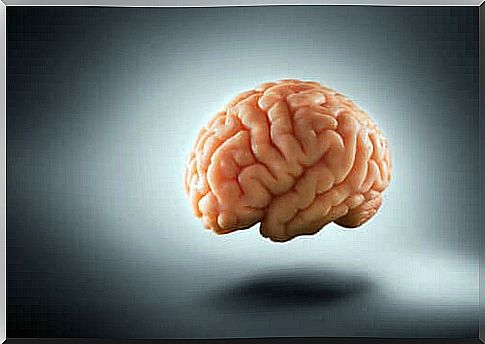Poverty Changes Our Brains

Does poverty have an influence on the brain? Over the past 50 years, much brain research has focused on studying the effects of an enriched environment. Thus, increased social and intellectual stimulation has been found to produce structural and functional changes in the brain.
In the face of this, studies have recently started to examine what happens if not. Thus, it has been observed that the lack of resources or poverty also modifies our brain.
The first studies focused on how socio-economic differences are reflected in behavior and cognition. Others have focused on locating different brain networks, functions and structures based on socioeconomic levels. Despite this, it is still not clear today how precisely these differences occur.
However, there is already enough evidence to claim that poverty alters our brains. And some mechanisms have been proposed.

The effect of poverty on the developing brain
These results have been seen primarily in the infant population, as the developing brain is more sensitive to external factors.
Brain development is determined by environmental factors as well as genetic factors. Therefore, the socio-economic level can influence this period.
Thus, it was found that the genetic load on the development of brain structure and cognition is higher in people of high socioeconomic level. Therefore, in those with low levels, the characteristics of the environment may have a greater weight.
Results
Language is one of the skills most closely related to the socio-economic status of children. Research on this topic has shown that children of lower socioeconomic level exhibit less specialization in areas of the brain involved in language. As well as a relationship between poverty and the size of these areas.
In terms of memory, the poorest children have a smaller hippocampus. This effect is also maintained up to 5 decades later, regardless of socio-economic conditions in adulthood.
On the other hand, the amygdala is a brain structure related to the processing of emotions, learning and motivation. In this sense, children surrounded by greater poverty exhibit a smaller height and altered activation of this area. This results in poorer emotional regulation.
Also in executive functions (more complex cognitive processes such as decision-making or planning), the lack of stimulation and resources produces alterations and deficits.
As in the previous processes, lower socio-economic levels are linked to poorer performance of executive functions. And at a lower volume of the affected areas of the brain.
The Effects of Poverty on the Adult Brain
Most of the effects of poverty seen among adults are due to lower socioeconomic status as children. However, some effects can also be seen regardless of the childhood they experienced.
For example, an interesting study published in Science found that “simple” economic concern affects cognitive performance, especially executive functions.
In the research, they divided into two groups on the basis of a single criterion: the difficulty of arithmetic operations. In the next step, the people of each group were faced with a more or less worrying economic situation.
For the easy condition, the two groups obtained similar results. In contrast, in this predicament, people who care more about their finances because they have less money performed less well. In other words, they were less able to inhibit inappropriate reactions, select appropriate responses, and retain relevant information.

Mechanisms
We do not know precisely the mechanisms operating under poverty to change our brains. However, there are several possible candidates for the list. These factors would act together, adding to the negative effect of each.
- Lack of resources: Limited resources, such as books, toys, or educational opportunities, undoubtedly affect the amount and quality of stimulation received
- Nutrition: Nutrients play a fundamental role in our brain, especially in neurological development. Thus, the lack of vitamin B12, omega-3, zinc or iron are very involved in the development of the brain by modulating plasticity, gene expression and by regulating the production and quality of neural networks.
- Stress: Children and adults living in poverty experience the effects of stress. Exposure to depleted environments is associated with increased production of cortisol. It has devastating effects when produced over a long period.
- Environmental toxicity: People of lower socioeconomic status tend to live in areas with greater environmental toxicity. For example, the suburbs close to factories and therefore more polluting
Either way, the fight against poverty does not seem to be all about health. We see that this variable, as a generator of a context with very specific circumstances, can be an obstacle to our cognitive functioning.










